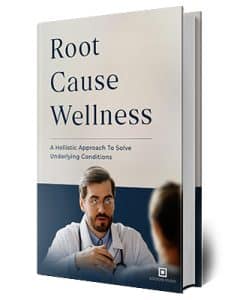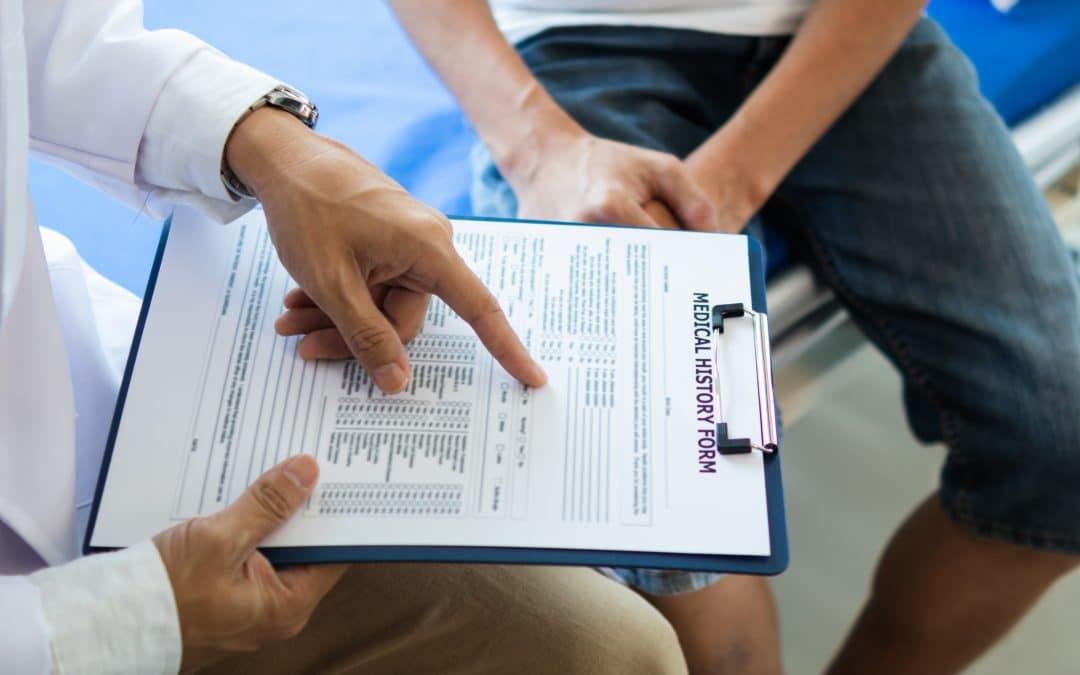What are Symptoms of Non-Celiac Gluten Intolerance?

Do you feel sick no matter what you eat? It’s as though your GI tract can’t handle anything. You feel bad when you eat at home, and you feel bad when you go out. You may even notice that you’ve lost some weight. Perhaps you dread sitting down to a meal. If this is your experience, then you’re most likely suffering from a food intolerance. Food intolerances can vary in severity and cause.
Some people are intolerant to dairy, while others might react adversely to caffeine. But no matter the cause, food intolerances will cause noticeable discomfort if you continue eating triggering foods. One of the most common food intolerances is triggered by gluten.
Some people have an autoimmune response to gluten, known as celiac disease. Others have symptoms of non-celiac gluten intolerance. If you notice uncomfortable symptoms, especially after eating a meal involving wheat, then you’ll want to work with a nutritionist or functional medicine doctor. Your doctor will assist you in monitoring your diet, finding healthy alternative meals, and reducing the effects of symptoms.
At Doctors Studio, we’ve helped many patients achieve vibrant lives through root cause wellness. We can help you, too!
Symptoms of Non-Celiac Gluten Intolerance
Gluten intolerances cause discomfort in the gut: the complex ecosystem of bacteria, cells, and tissues running from your esophagus to your large intestine. You’ll likely experience digestive issues when you consume gluten, but you might also experience symptoms related to mental clarity. That’s because the gut is considered the body’s “second brain,” containing millions of nerve receptors that can trigger different reactions in the primary brain. Do you experience any of these symptoms? If you do, then you may be suffering from non-celiac gluten intolerance.
1. Bloating and Gas
Feeling overly full after eating is a common side effect of non-celiac gluten intolerance. You might even have gas, which is not only uncomfortable, but also embarrassing. Bloating and gas happen because your gut isn’t able to digest gluten, and the inflamed gut lining swells and leads to excess gas.
2. Stomach Pain
A gluten intolerance will most likely damage your digestive tract. Therefore, stomach pain after eating gluten is extremely common.
3. Diarrhea or Constipation
Those with severe gluten intolerances may spend long periods of time on the toilet—or find themselves unable to go. These symptoms come down to damaged intestinal linings that are unable to digest food properly. Sometimes these symptoms can happen hours after the meal, so don’t dismiss diarrhea or constipation as a case of food poisoning.
4. Iron Deficiency
When the gut becomes inflamed or damaged, it loses its ability to absorb nutrients. While people with non-celiac gluten intolerances can be deficient in many nutrients, iron deficiency seems to be particularly common. If you crave chewing ice or notice hair loss, you might have anemia.
5. Fatigue and Brain Fog
All inflammation and allergies take a toll on the body. Plus, a damaged gut can send mixed signals to the brain. Many people dealing with non-celiac gluten intolerance complain of fatigue and brain fog.
6. Headaches
Like fatigue, headaches are a common symptom of non-celiac gluten intolerance. A damaged gut can send conflicting neural signals to the brain and cause headaches.
7. Depression and Anxiety
People develop depression and anxiety for many reasons, including chronic discomfort. If you constantly deal with unexplained pain from an undiagnosed gluten intolerance, then your quality of life will decrease. Your gut also holds a large percentage of serotonin receptors, a major contributor to emotions and mood.
8. Joint and Muscle Pain
The body’s inflammatory response can activate throughout the entire body even if the trigger is related to a gluten intolerance. Pay attention to when you feel most achy or stiff. Is it after eating wheat?
9. Leg or Arm Numbness
In rare cases, non-celiac gluten intolerances can lead to leg or arm numbness. If this happens, call a doctor right away as it may be a symptom of a more serious condition.

|
If You Only Treat Symptoms, the Underlying Causes Never Go AwayLet’s Get to the Bottom of Your Health Issues. Then Remedy Them. |
How to Reduce Symptoms of Non-Celiac Gluten Intolerance
After discovering that you have a gluten intolerance, the best course of action is to remove gluten from your diet. However, it’s unlikely that you’ll go your entire life without ingesting gluten again. Many people eat gluten by accident when eating out.
Here are a few suggested tips for reducing symptoms of non-celiac gluten intolerance:
- Reduce indigestion with apple cider vinegar
- Take digestive enzymes that help process gluten
- Rest to allow your body to heal
- Add probiotics to your diet to improve digestion and gut health
- Hydrate to improve overall bodily functions
- Try intermittent fasting to heal the gut
- Take fish oil and Omega 3s for intestinal protection
Can Non-Celiac Gluten Intolerance Symptoms be Caused by Another Condition?
At Doctors Studio, our team relies on extensive testing and one-on-one consultations to get to the bottom of your gut issues.
If you are tired of an upset stomach, cramping, and brain fog, contact us today to get started.
Related Blogs
The Studio Method: Unraveling the Root Cause for Optimal Wellness
The Lifelong Athlete: Longevity Strategies for Peak Performance. Learn about cutting-edge interventions from Doctors Studio in Boca Raton.
Join the Wellness Revolution: Membership Benefits at Doctors Studio
Explore Doctors Studio's unparalleled membership benefits in Boca Raton—top professionals, exclusive discounts, holistic services for a wellness journey
The Five Root Causes Of Insomnia
What are the five root causes of insomnia? Find the root cause of your insomnia and get a full night's sleep—naturally.
Enlarged Prostate In Boca Raton: Treatment And Advice
How to find lasting treatment and genuine empowerment for an enlarged prostate in Boca Raton.
Should You Use Functional Medicine Telehealth Services?
Have you wondered if functional medicine via telehealth is a good fit for you? Learn more today!
Pro-Active Health: Is Mold Causing Inflammation?
Is mold causing inflammation? Florida is notorious for mold problems; here’s what you need to know to take charge of your health.
How to Find a Great Functional Medicine Doctor in Boca Raton
Functional medicine is a patient-focused, whole-body approach to healthcare. It is vastly different from the traditional approach that most of us are used to and centers around total wellness, preventative care, and treating or reversing chronic conditions.
Boost Immunity AND Burn Fat? LIPO-MIC: The Gift that Keeps on Giving!
Boost immunity AND burn fat with the ultimate Santa's little helper this holiday season! Lipo-Mic - the gift that keeps on giving!
Is Non-Celiac Gluten Sensitivity Making You Ill?
What is Non-Celiac Gluten Sensitivity? And is it responsible for your digestive and health problems? Read on to find out!
Take Immunity to the Next Level!
Here's how you can take your health and fitness to the next level! Personalized supplements - the new trend in health and wellness.










